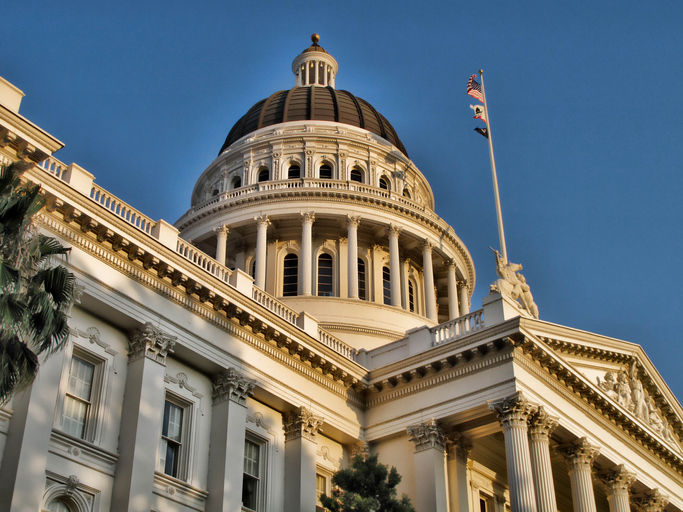A bill to establish a state-run, single-payer health care system in California died without a vote in the state Assembly after supporters realized they didn’t have enough votes to pass it.
A.B.1400 would have begun a state takeover of private insurance, Medicare, and Medi-Cal at a cost of $391 billion a year, says Sally C. Pipes, president, and chief executive officer of the Pacific Research Institute.
“Rather than risk the bill not passing, Assembly Member Ash Kalra (D-San Jose), the main sponsor, let it expire before a vote was held,” said Pipes. “There was even a funding mechanism attached, ACA11. It [ACA11] would have raised $163 billion in new taxes if it had passed the legislature and an initiative by the voters, whereby only a simple majority would be needed to raise taxes rather than the two-thirds majority under the current law.”
‘Single-payer Will Be Back’
Assembly Speaker Anthony Rendon (D-Lakewood), who had shelved a single-payer bill in 2017 because it did not include the tax hikes necessary to fund it, expressed his support for AB 1400.
“The shortage of votes needed to pass this bill out of the Assembly indicates the immense difficulty of implementing single-payer healthcare in California,” said Rendon, in a statement. “Nevertheless, I’m deeply disappointed that the author did not bring this bill up for a vote today. I support single-payer and fully intended to vote yes on this bill.”
This is not the end of single-payer efforts in California, says Pipes.
“The nurses’ union, Democratic Assembly Speaker Rendon, and members of the Progressive Caucus were furious that the bill did not come to a vote,” Pipes said. “California’s progressives say they are not giving up and that single-payer will be back. Stay tuned.”
‘Leads to Rationing’
Supporters of single-payer health care have an unrealistic view about the system and often overlook its obvious flaws, says Roger Stark, M.D., a health care policy analyst at Washington Policy Center, a retired physician, and policy advisor to The Heartland Institute.
“The fundamental problem with any single-payer health care system is it puts unseen government bureaucrats in charge of a patient’s medical care,” said Stark. “These bureaucrats then decide what kind of health care and how much each patient receives.
“Another fundamental problem is demand for health care far outweighs supply,” said Stark. “Financing a single-payer system is impossible, which leads to rationing by the government. Plus, health care financing must then compete with every other budget item, which makes medical care very political.”
‘Huge Increase in Taxpayer Burden’
A sharp rise in taxes is the hallmark of every single-payer health care system, says John C. Goodman, president of the Goodman Institute and co-publisher of Health Care News.
“Single-payer health insurance generally means replacing the money already being spent with taxpayer dollars,” said Goodman.
“Rarely is anything done to increase the number of doctors, nurses or medical procedures,” he said. “So, in return for a huge increase in taxpayer burden, you get virtually no improvement in health outcomes.”
‘Doctors Will Flee’
The money for single-payer health care must come from somewhere and one bureaucratic trick is shortchanging health care providers, says health economist Devon M. Herrick, Ph.D., a policy advisor to the Heartland Institute.
“The idea behind single-payer is with only one payer for medical care, the state can ratchet down what it pays doctors, hospitals, and drug makers,” said Herrick. “Proponents must realize doctors will flee to other states when their fees are cut to Medicaid levels. Indeed, rationing access to care is a feature of single-payer, not a bug.”
“In the states that still think they can enact single-payer health care, it’s either a political ploy or a pipe dream,” said Herrick. “Federal regulations and federal programs make it difficult if not impossible. Furthermore, voters with employee plans will not give up their higher quality coverage easily. Nor will Medicare beneficiaries want to compete for access to care with millions of other new beneficiaries.”
‘Like a Bad Penny’
Despite the failure to pass single-payer health care in California, other states are considering their own single-payer schemes, says Pipes.
“Despite the best efforts of progressives like Sen Bernie Sanders (I-VT) and Rep. Pramila Jayapal (D-WA), single-payer is off the table in Congress—at least for now,” said Pipes. “However, that does not mean single-payer is dead. Like a bad penny, it keeps coming back at the national level and in many blue states.
“Lawmakers in Oregon, New York, and a dozen states are pursuing their own form of single-payer health care,” said Pipes. “They would be wise to look at what just happened in California and in Vermont in 2014 and Colorado in 2016.”
The Vermont Legislature approved a single-payer system in 2011 but abandoned the plan when there was no clear path to fund the program. Colorado voters rejected a single-payer system in 2016, 79 percent to 21 percent. In March 2021, Colorado Democrats introduced a new bill that seeks a 1332 waiver from the federal government to help create a state-offered health insurance option. The waiver was submitted on November 30, 2021.
Kenneth Artz (KApublishing@gmx.com) writes from Dallas, Texas.
Internet Info:
California Assembly Bill 1400: https://leginfo.legislature.ca.gov/faces/billNavClient.xhtml?bill_id=201920200AB1400
